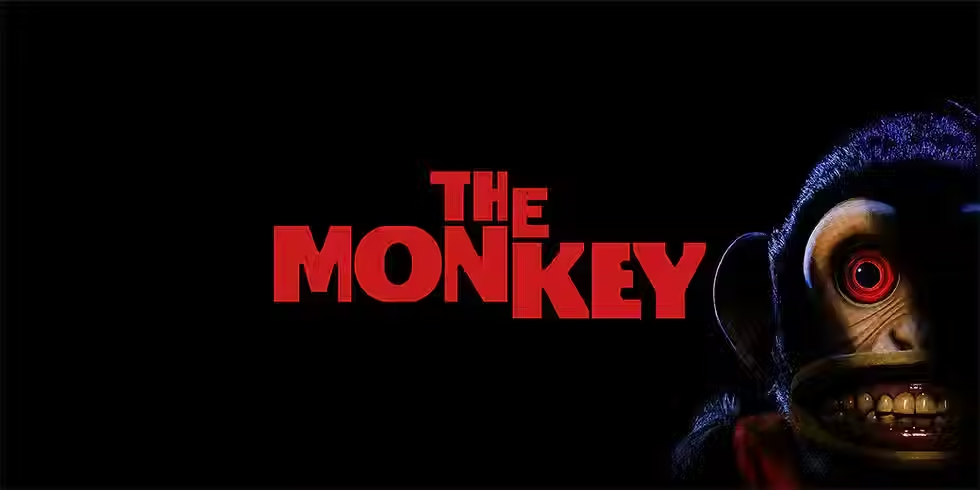Blink Twice: Rewriting the Cinderella Narrative
- Tavia Millward
- Nov 25, 2024
- 4 min read
Once upon a time, a cocktail waitress named Frida, struggling to make ends meet, is swept off her feet by tech billionaire Slater King and whisked away to his private island. But the fairy tale turns dark when Frida realizes that behind the luxury and charm, she’s being drugged to forget the abuse, and her Prince Charming is a predator.

In Zoe Kravitz’s bold directorial debut, Blink Twice flips the classic Cinderella story on its head, taking us beyond the fairy tale and into the dark underbelly of power, memory, and abuse. The film reimagines the fairy tale's theme of innocent longing and lost dreams into a disturbing narrative about survival, self-discovery, and empowerment.
Frida, a cocktail waitress behind on her rent, compellingly becomes entangled with tech billionaire, King, whom she meets at an exclusive tech event. Much like Cinderella attending the royal ball uninvited, Frida’s encounter with King is deliberate, but far from innocent. When she falls and breaks her heel in front of him, King helps her up—a seemingly charming gesture. But then, in a peculiar twist, he intentionally breaks her other heel, signalling the beginning of his subtle control and destructive tendencies. King, like a modern-day Prince Charming, is not who he seems. His destructive nature soon reveals itself as Frida’s descent into his world accelerates.

What seems like a fairy tale retreat in paradise—his private island—quickly transforms into a gilded cage. At first, Frida embraces the luxury, the beautiful perfume, the pristine white dresses, and the endless indulgence. She’s living the dream, bathed in the illusions of wealth and pleasure. But the snakes lurking on the island soon become a symbol for the darker truths Frida can’t ignore. The moment she drinks the green liquid she believes to be alcohol, only to discover it's snake venom, marks the first step in her awakening.
The venom is more than just a poison; it’s a vehicle for truth. The island’s rare flower, used to create the perfume, has the power to make Frida and the other women forget their trauma and abuse. This forced repression symbolizes how the elite men, including King, maintain control over the women they exploit. The more Frida remembers, the more she realises the horrific truth—her friend Jess is missing, and the men on the island are not just predators; they’re part of a system designed to keep women subjugated.
The contrast between Cinderella and Frida is stark. While Cinderella’s prince is a fairytale hero, Frida's Prince is a ruthless manipulator. Frida doesn't flee from her abuser at midnight. She faces him, makes him forget, and ultimately reclaims her power. The ending is both triumphant and thought-provoking—Frida, now the queen of her own story, takes her power back, stepping into her light and gaining power of King and his wealth.

In Blink Twice, Kravitz brings a haunting reminder of how easily we can be seduced by the promises of luxury and wealth, only to find ourselves caught in systems of exploitation. She shows us that memory, painful as it may be, is a tool for liberation. Frida’s journey isn’t just about escaping a toxic relationship; it’s about reclaiming the narrative of her life and using her trauma as a springboard for empowerment. In a world where powerful men hold all the cards, Blink Twice is a sharp critique of power dynamics, offering a feminist perspective on reclaiming one’s identity from the grip of abuse.
In the end, Kravitz reminds us that while Cinderella may have needed saving, Blink Twice’s Frida is ready to save herself. She is the most powerful piece on the board in the game of power and dominance, the Queen. And maybe, just maybe, that’s the fairy tale we need to see more of.
Behind the Scenes
Zoë Kravitz’s directorial debut Blink Twice, originally titled Pussy Island, is a bold and provocative exploration of power, vulnerability, and the dangerous allure of luxury. Kravitz chose the original title as a way to reclaim a word that often elicits discomfort, aiming to challenge societal taboos surrounding feminine empowerment. However, after facing backlash from both the Motion Picture Association and early audience reactions, the film was retitled to Blink Twice. Despite this change, Kravitz’s original vision remains intact: a sharp commentary on the toxic dynamics between the wealthy and the working class, and the manipulation that can arise from seemingly innocent relationships.
In her directorial approach, Kravitz seamlessly blends thriller elements with psychological drama, allowing the narrative to evolve from a promising fairytale into a harrowing story of control and betrayal. The transition from a glossy, idyllic paradise to a nightmare trapped in luxury is masterfully crafted. By focusing on the gradual shift in Frida's perspective, Kravitz taps into themes of female empowerment and the reclaiming of power after betrayal—telling a story of resilience and revenge wrapped in a stunning visual package.
This genre-shifting narrative, paired with Kravitz’s grounded direction, offers a fresh perspective on the complexities of female agency, even when it is momentarily overshadowed by predatory figures. Her nuanced handling of power dynamics not only enhances the tension throughout the film but also invites the audience to reflect on the unsettling realities of manipulation and the journey towards self-liberation. In Blink Twice, Kravitz doesn't just tell a story; she challenges viewers to confront the power structures that shape our relationships and define our vulnerabilities.



















Comentários